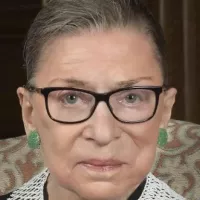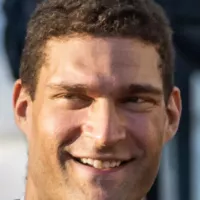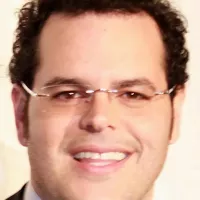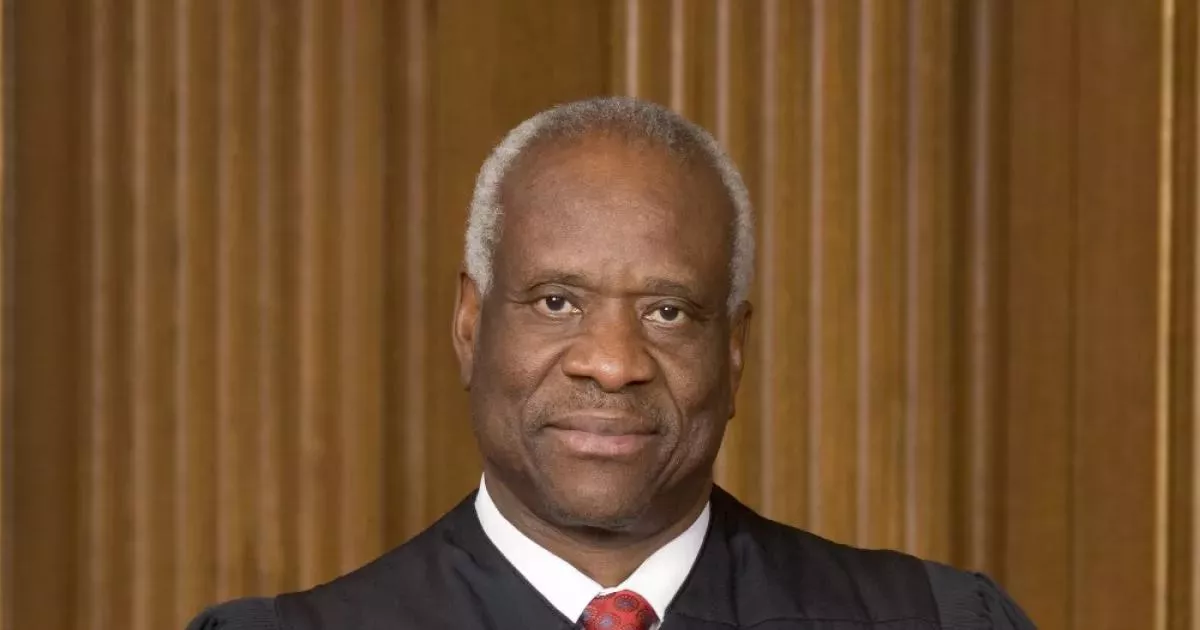Clarence Thomas is an Associate Justice of the Supreme Court of the United States. Nominated by President George H. W. Bush in 1991, he succeeded Thurgood Marshall, becoming the second African American to serve on the highest court. Thomas has become a prominent figure in American law, notably as the longest-serving member since 2018 and the oldest since 2022.
1925: Senate Recommits Justice Stone's Nomination
In 1925, the Senate took the rare step of recommitting Justice Harlan F. Stone's Supreme Court nomination to the Judiciary Committee. This unusual occurrence highlights the historical significance of such events in the Senate's confirmation process.
1927: Buck v. Bell
The 1927 Supreme Court case of Buck v. Bell, which upheld a forced sterilization law for people with mental disabilities, was cited by Thomas in his concurring opinion for Box v. Planned Parenthood. He compared this case to the case at hand, drawing parallels between eugenics and abortion.
1935: Enactment of the Law Challenged in Rubin v. Coors Brewing Company
A federal law was enacted in 1935, which would later be challenged and struck down in the 1995 case of Rubin v. Coors Brewing Company.
1946: Birth of Emma Thomas, Clarence Thomas's Older Sister
Clarence Thomas's older sister, Emma, was born in 1946.
January 1947: Marriage of Clarence Thomas's Parents
Clarence Thomas's parents, Leola Williams and M.C. Thomas, were married in January 1947 after Leola became pregnant with their first child.
June 23, 1948: Birth of Clarence Thomas
Clarence Thomas was born on June 23, 1948, in Pin Point, Georgia.
1949: Influence of Ayn Rand
Ayn Rand's work, particularly "The Fountainhead" (and its 1949 film adaptation), had a significant influence on Clarence Thomas.
1949: Birth of Myers Thomas, Clarence Thomas's Younger Brother
Clarence Thomas's younger brother, Myers, was born in 1949.
March 1951: Divorce of Clarence Thomas's Parents
In March of 1951, a judge granted M.C. Thomas a divorce from his wife Leola. He claimed she neglected their children.
1952: Immigration and Nationality Act
The Immigration and Nationality Act of 1952 was enacted, which would later become relevant to a case involving Justice Thomas in 2018.
1955: Fire Destroys Home of Clarence Thomas's Aunt; He Moves in with Grandfather
When his aunt's house burned down in 1955, Clarence Thomas, his mother, and brother moved to Savannah, Georgia, and Thomas went to live with his grandfather.
1960: Racial Unrest and Protests Begin in Savannah
From 1960 to 1963, there was widespread protest and unrest in Savannah, Georgia.
1961: Desegregation of Libraries in Savannah, Georgia
Libraries in Savannah, Georgia were desegregated in 1961.
1963: Gideon v. Wainwright
Gideon v. Wainwright, decided in 1963, established the right of indigent criminal defendants to legal representation. This landmark ruling was later challenged by Justices Thomas and Gorsuch in their dissent in Garza v. Idaho.
1963: Thomas's Criticism of Landmark Precedents
Justice Clarence Thomas has consistently expressed his view that the Supreme Court should not uphold erroneous precedents, a position not shared by other justices. He has criticized landmark cases such as Gideon v. Wainwright (1963), reflecting his willingness to reconsider established legal principles.
1963: End of Widespread Protests and Unrest in Savannah
Widespread protests and racial unrest that began in 1960 ended in Savannah, Georgia, in 1963.
1964: Clarence Thomas's Work at the EEOC (Context)
As chairman of the EEOC, Clarence Thomas was responsible for enforcing the Civil Rights Act of 1964, a role that put him at the center of debates about affirmative action and racial quotas in the workplace.
1964: Thomas's Criticism of Landmark Precedents
Justice Clarence Thomas has consistently expressed his view that the Supreme Court should not uphold erroneous precedents, a position not shared by other justices. He has criticized landmark cases such as New York Times Co. v. Sullivan (1964), reflecting his willingness to reconsider established legal principles.
1964: Title VII of the Civil Rights Act
The Supreme Court heard a case in 2020, Bostock v. Clayton County, Georgia, regarding the interpretation of Title VII of the Civil Rights Act of 1964. In a 6-3 ruling, the court decided that the act protected employees from discrimination based on their sexual orientation or gender identity.
1965: Griswold v. Connecticut
Thomas argued in his 2022 concurring opinion for Dobbs v. Jackson Women's Health Organization that the Supreme Court should reconsider Griswold v. Connecticut (1965), a case that helped establish the right to privacy regarding contraception.
1967: Clarence Thomas Begins Studies at Conception Seminary College
Clarence Thomas began studying at Conception Seminary College, a Benedictine seminary, in 1967.
1968: Assassination of Martin Luther King Jr.
Civil rights activist Martin Luther King Jr. was assassinated in 1968.
1968: Clarence Thomas Enrolls at College of the Holy Cross, Founds Black Student Union
In 1968, Clarence Thomas enrolled at the College of the Holy Cross. He helped found the college's Black Student Union the same year.
April 1970: Clarence Thomas Participates in Harvard Square Riots
Clarence Thomas participated in the violent Harvard Square riots in April 1970.
June 4, 1971: Clarence Thomas Graduates from College and Starts at Yale Law School
On June 4, 1971, Clarence Thomas graduated cum laude from college, ranking ninth in his class. He then chose to attend Yale Law School, one of the prestigious institutions that accepted him, with a focus on civil rights activism.
1971: Marriage to Kathy Grace Ambush
In 1971, Clarence Thomas married Kathy Grace Ambush.
1972: Supreme Court's Ban on Death Sentences
In 1972, the Supreme Court instituted a ban on death sentences, a decision that was later revisited and altered in 1976 with the Furman v. Georgia and Gregg v. Georgia rulings. Justice Thomas's stance on the death penalty, evident in his opinions, aligns with the framework established in these later cases.
1973: Birth of Son, Jamal Adeen
Clarence Thomas's only child, Jamal Adeen, was born in 1973.
1973: Thomas's Criticism of Landmark Precedents
Justice Clarence Thomas has consistently expressed his view that the Supreme Court should not uphold erroneous precedents, a position not shared by other justices. He has criticized landmark cases such as Roe v. Wade (1973), reflecting his willingness to reconsider established legal principles.
May 20, 1974: Clarence Thomas Graduates Law School and Faces Job Search Challenges
Clarence Thomas received his Juris Doctor degree on May 20, 1974. He aimed to work in corporate law but encountered prejudice from firms doubtful of his qualifications beyond affirmative action.
September 13, 1974: Clarence Thomas Begins Work for Missouri Attorney General
On September 13, 1974, after struggling to find a job in corporate law, Clarence Thomas was admitted to the Missouri bar and started working for Missouri Attorney General John Danforth, marking the start of a significant career turn.
1974: Clarence Thomas Becomes Assistant Attorney General of Missouri
In 1974, Clarence Thomas began his role as an assistant attorney general of Missouri, the sole African-American on staff at the time.
1975: Influence of Thomas Sowell
In 1975, Clarence Thomas read Thomas Sowell's "Race and Economics," a book that significantly influenced his philosophical outlook.
1975: Length of Supreme Court Nomination Processes
Since 1975, the duration of Supreme Court nomination processes has varied, with some nominees facing significantly longer periods of scrutiny than others. This highlights the evolving nature of the confirmation process and the increasing challenges nominees may encounter.
1976: Furman v. Georgia and Gregg v. Georgia
The 1976 cases of Furman v. Georgia and Gregg v. Georgia significantly shaped the Supreme Court's stance on the death penalty. Justice Thomas, in his majority opinion on Kansas v. Marsh, indicated his view that states have significant procedural flexibility in imposing capital punishment as long as they operate within the bounds set by these cases.
1976: John Danforth Elected to Senate, Clarence Thomas Briefly Joins Monsanto
When John Danforth was elected to the U.S. Senate in 1976, Clarence Thomas briefly worked as an attorney at Monsanto before deciding to rejoin Danforth in Washington, D.C.
1977: Clarence Thomas Concludes Time as Assistant Attorney General of Missouri
Clarence Thomas served as assistant attorney general of Missouri until 1977. During this time, he built a reputation as a fair but controversial prosecutor.
1979: Clarence Thomas Becomes Legislative Assistant to U.S. Senator John Danforth
Clarence Thomas started working as a legislative assistant for U.S. Senator John Danforth in 1979.
1979: Clarence Thomas Returns to Washington as Legislative Assistant for Danforth
In 1979, Clarence Thomas returned to Washington D.C. to work as a legislative assistant for John Danforth, handling energy issues for the Senate Commerce Committee.
1979: Overruling of Nevada v. Hall and Implications for Future Cases
Justice Clarence Thomas's majority opinion in Franchise Tax Board of California v. Hyatt (2019), which overturned Nevada v. Hall (1979), sparked debate about the potential implications for other landmark decisions, including Roe v. Wade, raising concerns about the future of established precedents.
1980: Doggett Indicted
In 1980, the defendant in Doggett v. United States was indicted, marking the beginning of his fugitive status.
May 1, 1981: President Reagan Nominates Clarence Thomas for Assistant Secretary of Education
President Ronald Reagan nominated Clarence Thomas as assistant secretary of education for the Office for Civil Rights on May 1, 1981.
May 28, 1981: Senate Receives Nomination of Clarence Thomas
The Senate received Clarence Thomas's nomination for assistant secretary of education on May 28, 1981.
1981: Clarence Thomas Gains Attention of Reagan Administration
By 1981, Clarence Thomas, now a Republican, attracted the attention of officials in the Reagan Administration as a Black conservative, leading to his appointment as assistant secretary for civil rights at the U.S. Department of Education.
1981: Separation from First Wife
Clarence Thomas and his first wife, Kathy Grace Ambush, separated in 1981.
1981: Clarence Thomas Appointed Assistant Secretary for Civil Rights
In 1981, Clarence Thomas was appointed as the Assistant Secretary for Civil Rights at the U.S. Department of Education.
1982: Clarence Thomas Becomes Chairman of the EEOC
In 1982, Clarence Thomas took on the role of chairman of the Equal Employment Opportunity Commission (EEOC).
1984: Divorce from Kathy Grace Ambush
Clarence Thomas and Kathy Grace Ambush divorced in 1984.
1987: Marriage to Virginia Lamp
In 1987, Clarence Thomas married Virginia Lamp, a lobbyist and aide to U.S. Representative Dick Armey.
1988: Doggett v. United States
In the 1988 case of Doggett v. United States, the Court found a violation of the defendant's Sixth Amendment right to a speedy trial due to the eight-year delay between his indictment in 1980 and arrest. Justice Thomas dissented, arguing that the Speedy Trial Clause primarily addresses prolonged detention and anxiety caused by public accusations, neither of which applied in this case.
October 30, 1989: President Bush Nominates Clarence Thomas to the D.C. Circuit Court of Appeals
On October 30, 1989, President George H. W. Bush nominated Clarence Thomas to the United States Court of Appeals for the District of Columbia Circuit. The nomination came amidst ongoing debates about race and representation in the judiciary.
1989: Beginning of Amended Financial Reports
Clarence Thomas amended his financial disclosure reports back to 1989.
1989: Clarence Thomas Considered for Federal Judgeship, Faces Opposition
In 1989, President George H.W. Bush considered nominating Clarence Thomas for a federal judgeship, but this sparked opposition from liberal groups like the Alliance for Justice and the National Organization for Women (NOW).
February 1990: Senate Judiciary Committee Recommends Clarence Thomas for D.C. Circuit
In February 1990, the Senate Judiciary Committee recommended Clarence Thomas for the D.C. Circuit Court of Appeals by a vote of 12 to 1, highlighting the complex political landscape surrounding his nomination.
March 6, 1990: Senate Confirms Clarence Thomas to the D.C. Circuit Court of Appeals
The Senate confirmed Clarence Thomas's appointment to the Court of Appeals on March 6, 1990, where he served for 19 months and built relationships with colleagues like Ruth Bader Ginsburg.
July 1990: Clarence Thomas Considered for Supreme Court, but Bush Chooses Souter
When Justice William Brennan retired in July 1990, Clarence Thomas was on President Bush's shortlist, but concerns about his experience led to the nomination of David Souter instead.
1990: Board of Trustees Membership at College of the Holy Cross (First Term)
Clarence Thomas began his first term as a member of the College of the Holy Cross's board of trustees in 1990.
1990: Clarence Thomas Concludes Chairmanship of the EEOC
Clarence Thomas served as chairman of the Equal Employment Opportunity Commission (EEOC) until 1990.
1990: Concurrence in United States v. Lopez
In 1990, the Gun-Free School Zones Act was passed, which would later be challenged in a case involving Justice Thomas. He later concurred in United States v. Lopez, striking down the 1990 Gun-Free School Zones Act for overstepping the Commerce Clause. He believed the Court strayed from the original understanding of the clause and criticized the substantial effects test for potentially granting Congress excessive power over American life.
1990: Clarence Thomas Nominated to the United States Court of Appeals
President George H. W. Bush nominated Clarence Thomas to the United States Court of Appeals for the District of Columbia Circuit in 1990.
June 27, 1991: Justice Thurgood Marshall Retires, Paving the Way for Thomas's Nomination
Justice Thurgood Marshall announced his retirement from the Supreme Court on June 27, 1991, creating a vacancy that President Bush would later fill with Clarence Thomas.
July 31, 1991: NAACP Opposes Thomas's Confirmation
On July 31, 1991, the NAACP board of directors voted against endorsing Clarence Thomas for the Supreme Court and announced their opposition to his confirmation. This came after liberal interest groups challenged his nomination, particularly due to concerns about his stance on Roe v. Wade.
September 10, 1991: Thomas's Confirmation Hearings Begin
Clarence Thomas's formal confirmation hearings before the Senate Judiciary Committee commenced on September 10, 1991. During his extensive testimony, lasting 25 hours, Thomas was notably reserved in his responses to senators' inquiries, particularly regarding his views on natural law and its relationship to the Constitution.
September 27, 1991: Judiciary Committee Sends Thomas's Nomination to Full Senate
On September 27, 1991, the Senate Judiciary Committee voted 13-1 to send Clarence Thomas's Supreme Court nomination to the full Senate without a recommendation. This followed a tied vote on a motion to give the nomination a favorable recommendation, highlighting the divided opinions on his confirmation.
October 11, 1991: Thomas Denies Sexual Harassment Allegations
When the Senate Judiciary Committee reconvened on October 11, 1991, to address sexual harassment allegations raised by Anita Hill, Clarence Thomas vehemently denied the accusations. He asserted that he had never acted inappropriately towards Hill and refused to answer questions about his private life, framing the situation as an attempt to derail his confirmation.
October 15, 1991: Senate Confirms Thomas as Associate Justice
On October 15, 1991, following a contentious confirmation process marked by sexual harassment allegations, the Senate voted 52-48 to confirm Clarence Thomas as an Associate Justice of the Supreme Court. The vote was largely along party lines, with Thomas receiving support from the majority of Republicans and a few Democrats.
1991: Clarence Thomas Becomes Associate Justice of the Supreme Court
In 1991, Clarence Thomas began his tenure as an Associate Justice of the Supreme Court, nominated by President George H. W. Bush to succeed Thurgood Marshall.
1991: Limited Participation in Oral Arguments
Since he joined the court in 1991, Thomas has spoken during 32 out of approximately 2,400 arguments, a stark contrast to his colleagues.
1992: Horatio Alger Award
Clarence Thomas was honored with the Horatio Alger Award by the Horatio Alger Association of Distinguished Americans in 1992.
1992: Planned Parenthood v. Casey
In 1992, the Supreme Court reaffirmed Roe v. Wade in the landmark case of Planned Parenthood v. Casey. Justice Thomas, alongside Justice Byron White, dissented, siding with the opinions of Justices Rehnquist and Scalia, who argued for Roe v. Wade's reversal.
1992: R.A.V. v. City of St. Paul Decision
Justice Thomas participated in the case of R.A.V. v. City of St. Paul in 1992, marking a significant moment in his jurisprudence related to free speech.
1994: Start of Judicial Review Analysis
The year 1994 marked the beginning of a period where Justice Thomas's voting record on judicial review cases was analyzed, as noted by a New York Times editorial.
1995: Dissent in U.S. Term Limits, Inc. v. Thornton
In the 1995 case of U.S. Term Limits, Inc. v. Thornton, Justice Thomas wrote his longest dissent to date, arguing that states could set term limits on members of Congress because state citizens are the ultimate source of the Constitution's power.
1995: McIntyre v. Ohio Elections Commission and Rubin v. Coors Brewing Company Decisions
Justice Thomas penned his first free speech opinion in the 1995 case of McIntyre v. Ohio Elections Commission, drawing parallels between anonymous political pamphlets of the Founding Era and contemporary practices. While agreeing with the outcome of Justice Stevens's majority opinion, he diverged on the methodology. Notably, in Rubin v. Coors Brewing Company, also decided in 1995, Thomas authored his first majority opinion concerning free speech, striking down a 1935 federal law prohibiting alcohol content on beer labels.
1996: Dissent in Romer v. Evans
In 1996, Thomas joined Scalia's dissenting opinion in Romer v. Evans, arguing that an amendment to the Colorado State Constitution forbidding protections based on "homosexual, lesbian, or bisexual orientation, conduct, practices or relationships" did not violate the Equal Protection Clause.
1996: Colorado Republican Federal Campaign Committee v. FEC
In 1996, the Supreme Court ruled against the Federal Election Commission's decision to fine the Colorado Republican Federal Campaign Committee for a political advertisement. Justice Thomas joined the majority opinion but wrote separately, expressing his opposition to the framework established in the Buckley v Valeo (1976) campaign finance case.
1997: Taking in Great-Nephew
Clarence Thomas and Virginia Lamp took in Thomas's six-year-old great-nephew, Mark Martin Jr., in 1997.
September 24, 1999: "Why Federalism Matters" Lecture
On September 24, 1999, Justice Thomas delivered the Dwight D. Opperman Lecture titled "Why Federalism Matters" at Drake University Law School. He emphasized federalism as crucial for protecting individual liberty and private life, arguing that it bolsters self-governance, safeguards individual liberty through the division of political power, and acts as a check on federal authority.
1999: Purchase of Prevost Le Mirage XL Marathon RV
Clarence Thomas purchased a Prevost Le Mirage XL Marathon RV in 1999 for $267,230.
1999: Allegation of Groping
Moira Smith alleged that Clarence Thomas groped her at a dinner party in 1999. Thomas denied the allegation.
1999: Cross-Country Travels
Since 1999, Clarence Thomas and Virginia Lamp have traveled across the U.S. in a motorcoach between Court terms.
2000: Stenberg v. Carhart
The Supreme Court's 2000 decision in Stenberg v. Carhart, striking down a state ban on partial-birth abortions, drew sharp criticism from Justice Thomas. In his dissent, he argued that the Constitution doesn't mandate states to permit abortions and criticized the majority's reasoning as a thinly veiled attempt to oppose any state regulation of abortion.
2001: Francis Boyer Award
In 2001, Clarence Thomas received the prestigious Francis Boyer Award from the American Enterprise Institute.
2002: Free Speech Study
In 2002, a study by Eugene Volokh identified Justice Thomas as the second most likely justice (along with Justice Souter) to uphold free speech claims.
2003: Lawrence v. Texas
As part of his argument in his 2022 concurring opinion in Dobbs v. Jackson Women's Health Organization, Thomas stated that the Supreme Court should reconsider Lawrence v. Texas (2003), which invalidated sodomy laws.
2003: Unreported Income from The Heritage Foundation
Between 2003 and 2007, Clarence Thomas did not disclose $686,589 in income his wife earned from The Heritage Foundation.
2004: Analysis of Gifts Received
An analysis by Fix the Court revealed that Clarence Thomas had accepted over $4.2 million worth of gifts from 2004 onwards, significantly higher than other Supreme Court justices.
2004: Board of Trustees Membership at College of the Holy Cross (Second Term Begins)
Clarence Thomas started his second term as a board member at the College of the Holy Cross in 2004.
2004: Acceptance of Gifts from Harlan Crow
In 2004, it was reported that Clarence Thomas had accepted valuable gifts from Harlan Crow, a wealthy Republican donor.
2004: Thomas's Dissent in Hamdi v. Rumsfeld and Views on Executive Power
Justice Clarence Thomas's dissenting opinion in the 2004 case Hamdi v. Rumsfeld highlighted his belief in a broad interpretation of executive power, particularly in matters of national security. He argued for greater deference to the executive branch's decisions, reflecting his views on the balance of power within the government.
2005: Dissent in Gonzales v. Raich
In 2005, Justice Thomas dissented in Gonzales v. Raich, a case concerning the application of the Controlled Substances Act to homegrown marijuana. He argued based on the original meaning of the interstate commerce clause, disagreeing with Scalia's interpretation. He believed that allowing Congress to regulate homegrown marijuana would grant them excessive power, undermining the concept of limited federal powers.
2005: End of Judicial Review Analysis
The year 2005 marked the end of a period where Justice Thomas's voting record on judicial review cases was analyzed, as noted by a New York Times editorial.
February 2006: Start of Silent Period During Oral Arguments
For a decade, between February 2006 and February 2016, Thomas opted to not ask questions during oral arguments, though he still read his opinions. He offered several explanations for this, such as self-consciousness about his speech, a preference for listening, and finding it difficult to interject during these sessions.
2006: End of Second Term on Board of Trustees at College of the Holy Cross
Clarence Thomas completed his second term as a board member at the College of the Holy Cross in 2006.
2006: Dissent in Northwest Austin Municipal Utility District No. 1 v. Holder
In 2006, Congress reauthorized Section Five of the Voting Rights Act. That same year, in Northwest Austin Municipal Utility District No. 1 v. Holder, Justice Thomas stood alone in his dissent, seeking to invalidate Section Five. He argued that the law, intended to address racial discrimination in voting, was no longer needed. He cited higher black voting rates in states formerly under Section Five's purview as evidence. He believed that the threats that prompted the law's enactment were no longer present.
2006: Hamdan v. Rumsfeld Dissent
In 2006, Justice Thomas was one of three justices who dissented in the case of Hamdan v. Rumsfeld. This case dealt with the president's authority to create military tribunals for trying suspected enemy combatants for war crimes conspiracy. In his dissent, Thomas, invoking The Federalist Papers, contended that the president bears the responsibility for safeguarding national security.
2007: Judicial Review Tendencies
By 2007, Justice Thomas was recognized as the justice most inclined to review federal statutes but less likely to overturn those made by states. A New York Times analysis noted that between 1994 and 2005, he voted to overturn more federal laws than Justices Scalia and Breyer.
2007: End of Period of Unreported Income
Clarence Thomas failed to report his wife's income from the Heritage Foundation from 2003 to 2007.
2007: Morse v. Frederick
In 2007, Justice Thomas, concurring in Morse v. Frederick, supported narrowing the scope of the 1969 Tinker ruling, arguing that it had unconstitutionally broadened students' speech rights and should be overturned. He believed that public school student discipline for expressive behavior was outside the Constitution's purview.
2007: Gonzales v. Carhart Concurrence
In 2007, the Supreme Court heard a case regarding a federal ban on partial-birth abortion in Gonzales v. Carhart. While concurring with the Court's decision to uphold the ban, Thomas wrote separately to assert his belief that the court's abortion jurisprudence had no basis in the Constitution, though he believed the Court had correctly applied it in this specific instance.
2007: Clarence Thomas Reflects on Yale Law School Experience
In his 2007 memoir, Clarence Thomas expressed his disappointment with his time at Yale Law School, feeling that his degree was unfairly devalued due to perceptions about affirmative action.
2008: Loan Forgiveness for RV Purchase
The loan Clarence Thomas received for his RV purchase in 1999 was forgiven in 2008.
2010: McDonald v. Chicago
In 2010, Justice Thomas agreed that the right to bear arms applied to state and local governments in McDonald v. Chicago. However, he wrote a separate concurrence, arguing that this right is fundamental as a privilege of American citizenship under the Privileges or Immunities Clause, not solely under the due process clause.
2010: Citizens United v. FEC & Doe v. Reed
In 2010, Justice Thomas joined the majority opinion in Citizens United v. FEC but dissented in part, arguing against the constitutionality of disclaimer and disclosure requirements for campaign finance. He also defended anonymous political association in Doe v. Reed that same year.
2010: Dissent in United States v. Comstock
In 2010, the Supreme Court ruled on United States v. Comstock, concerning the detention of mentally ill federal prisoners. Justice Thomas, dissenting, argued that the Necessary and Proper Clause only permits Congress to carry out explicitly stated powers.
2010: Thomas's Approach to Stare Decisis in McDonald v. City of Chicago
In the 2010 gun regulation case McDonald v. City of Chicago, Justice Clarence Thomas expressed his view that stare decisis, the principle of adhering to precedent, should not prevent the Court from overturning past rulings if they are deemed inconsistent with the Constitution.
2010: United States v. Stevens Decision
Justice Thomas was involved in the United States v. Stevens case in 2010, further adding to his record on First Amendment issues.
2010: Dissenting from Denial of Certiorari in Second Amendment Cases
Since 2010, Justice Thomas has consistently dissented from the Supreme Court's denial to hear several Second Amendment cases, demonstrating his firm stance on gun rights.
June 2011: Beginning of Payments to Liberty Consulting
Ginni Thomas's firm, Liberty Consulting, started receiving payments in June 2011 from Kellyanne Conway's polling firm, which had been paid by the Judicial Education Project.
2011: Virginia Thomas's Political Activities and Calls for Recusal
In 2011, Virginia Thomas stepped down from Liberty Central to open a conservative lobbying firm. Also in 2011, 74 Democratic members of the House of Representatives suggested Justice Thomas should recuse himself on cases regarding the Affordable Care Act due to his wife's lobbying work, citing a potential conflict of interest.
2011: Reporting of Spouse's Income and Tea Party Donations
In 2011, it was revealed that Clarence Thomas had not reported his wife's income on his financial disclosures for over a decade. He amended these reports going back to 1989. There were also reports of Harlan Crow donating to a Tea Party group founded by Virginia Thomas.
2011: Snyder v. Phelps Decision
In 2011, the Supreme Court decided the case of Snyder v. Phelps, which had implications for free speech and drew the participation of Justice Thomas.
January 2012: Payments to Ginni Thomas's Firm from Judicial Education Project
In January 2012, Leonard Leo, a conservative judicial activist, arranged for the Judicial Education Project to pay $25,000 to Kellyanne Conway's polling firm, which then paid the same amount to Ginni Thomas's firm, Liberty Consulting.
June 2012: End of Payments to Liberty Consulting
Ginni Thomas's firm, Liberty Consulting, received a total of $80,000 between June 2011 and June 2012 from Kellyanne Conway's polling firm.
October 1, 2012: Thomas's Judicial Philosophy and Record
By October 1, 2012, Justice Clarence Thomas had authored a substantial body of legal opinions, reflecting his conservative judicial philosophy characterized by originalism, judicial restraint, and a willingness to challenge precedent. His record demonstrated a distinct approach to interpreting the Constitution and a commitment to limiting judicial discretion.
2012: Honorary Degree from College of the Holy Cross
Clarence Thomas's alma mater, the College of the Holy Cross, bestowed upon him an honorary degree in 2012.
2012: Dissent in National Federation of Independent Business v. Sebelius
In 2012, Justice Thomas wrote a brief dissent and joined a larger dissent that found the Affordable Care Act entirely unconstitutional, when the court upheld the Affordable Care Act.
2013: Thomas's Views on Stare Decisis
During a 2013 Federalist Society dinner, Justice Clarence Thomas reiterated his stance on stare decisis, the principle of upholding precedent. He acknowledged its importance but emphasized that it should not prevent the Court from revisiting past decisions if they deviate from the Constitution.
2013: Explanation for Limited Questioning
In 2013, Thomas addressed his infrequent questioning during oral arguments, stating that he didn't feel the need to ask many questions and that the court "should listen to lawyers who are arguing their cases".
2014: Jackson v. San Francisco
Justice Thomas voted to hear Jackson v. San Francisco (2014), which involved trigger lock ordinances similar to those previously invalidated in the Heller case.
2015: Obergefell v. Hodges
In his 2022 concurring opinion in Dobbs v. Jackson Women's Health Organization, Thomas argued that Obergefell v. Hodges (2015), the landmark case legalizing same-sex marriage nationwide, should be reconsidered by the Supreme Court.
2015: Zivotofsky v. Kerry Opinion
In the 2015 case of Zivotofsky v. Kerry, Justice Thomas wrote a notable opinion where he drew upon the Articles of Confederation. He argued that the president's authority isn't limited to powers explicitly outlined in the Constitution. He concluded that remaining foreign affairs powers reside with the president, not Congress. Thomas clarified that his approach wasn't about finding the original intent but understanding the prevailing view of executive power during the founding era.
2015: Friedman v. City of Highland Park
Justice Thomas voted to grant certiorari in Friedman v. City of Highland Park (2015), a case concerning bans on specific types of semi-automatic rifles.
February 2016: End of Silent Period During Oral Arguments
By February 2016, after a 10-year period of silence during oral arguments, Thomas began to take a more active role, though he still remained less vocal than other justices.
2016: Thomas's Increased Opinion Writing
In 2016, Justice Clarence Thomas wrote nearly twice as many opinions as any other justice on the Supreme Court, indicating his active role in shaping the Court's jurisprudence and his influence on legal decisions.
2016: Peruta v. San Diego County
In 2016, Justice Thomas supported hearing Peruta v. San Diego County, challenging California's strict concealed carry licensing rules.
2016: Moira Smith Comes Forward
Moira Smith publicly accused Clarence Thomas of groping her in 1999.
2017: Silvester v. Becerra
Justice Thomas favored hearing Silvester v. Becerra (2017), which upheld waiting periods for firearm purchases even for individuals who had passed background checks and owned firearms.
2017: Northwestern University Law Review Paper on Thomas's Questioning Style
RonNell Andersen Jones and Aaron L. Nielson authored a paper in 2017, which was published in the Northwestern University Law Review. They asserted that despite asking few questions, Thomas was "in many ways ... a model questioner".
December 2018: Dissent in Planned Parenthood Funding Cases
In December 2018, the Supreme Court voted not to hear cases regarding the denial of Medicaid funding to Planned Parenthood. Thomas, joined by Justices Alito and Gorsuch, dissented from this decision, arguing that the Court was "abdicating its judicial duty" by not hearing the cases.
2018: Dissent in East Bay Sanctuary Covenant v. Trump
In 2018, Justice Thomas dissented against the denial of a stay application in the Ninth Circuit case of East Bay Sanctuary Covenant v. Trump, which challenged the Trump administration's asylum policy. The Ninth Circuit had issued an injunction on the policy that limited asylum to those entering at designated points, deeming it a violation of the 1952 Immigration and Nationality Act.
2018: Clarence Thomas Becomes Longest-Serving Member on the Supreme Court
With the retirement of Anthony Kennedy in 2018, Clarence Thomas became the longest-serving member on the Supreme Court.
February 2019: Vote on Louisiana Abortion Law
Thomas joined three other conservative justices in February 2019 in voting to reject a stay that would have temporarily blocked a Louisiana law restricting abortion. The law, which was temporarily stayed by a 5-4 decision, would have required doctors performing abortions to have admitting privileges in a hospital.
July 2019: Receipt of Food, Lodging, and Travel Gifts
Clarence Thomas received food and lodging at a hotel in Bali and a private club in California, as well as travel on private jets and a superyacht, from Harlan Crow in July 2019.
2019: Thomas's Frequent Challenges to Precedents
In 2019, The New York Times reported on data analysis revealing that Justice Clarence Thomas had written numerous opinions challenging established precedents, suggesting his commitment to reconsidering existing legal interpretations.
2019: Concurrence in Box v. Planned Parenthood
In 2019, the Supreme Court issued a per curiam decision in Box v. Planned Parenthood of Indiana and Kentucky, Inc., upholding part of an Indiana abortion restriction law. Thomas wrote a concurring opinion, in which he compared abortion and birth control to eugenics. He cited the book "Imbeciles: The Supreme Court, American Eugenics, and the Sterilization of Carrie Buck" in his opinion, which drew criticism from the book's author, Adam Cohen, for misrepresenting the book's contents and eugenics' history.
2019: Thomas's Overruling of Precedent in Franchise Tax Board of California v. Hyatt
In the 2019 case Franchise Tax Board of California v. Hyatt, Justice Clarence Thomas authored the majority opinion, overturning a previous ruling and emphasizing that stare decisis is not an absolute constraint on the Court's ability to revisit past decisions.
2019: Thomas's Views on Precedent in Gamble v. United States
In the 2019 case Gamble v. United States, Justice Clarence Thomas, while joining the majority opinion, articulated his skepticism towards the Court's multi-factor approach to determining when to overturn precedent, suggesting a more rigorous standard for upholding past decisions.
2019: Guedes v. Bureau of Alcohol, Tobacco, Firearms, and Explosives
Justice Thomas, along with Justice Gorsuch, publicly dissented in 2019 when the Supreme Court denied an application for a stay in Guedes v. Bureau of Alcohol, Tobacco, Firearms, and Explosives. This case contested the Trump administration's ban on bump stocks, and the dissent highlighted their disagreement with the Court's decision.
May 2020: Shift to Teleconferenced Arguments and Seniority-Based Questioning
The Supreme Court's move to teleconferenced arguments in May 2020, prompted by the COVID-19 pandemic, led to a change in the Court's approach to questioning during oral arguments. The new format, based on seniority, gave Thomas more opportunity to engage, and he became more active in questioning.
May 2020: Increased Participation in Teleconferenced Arguments
When the Supreme Court transitioned to teleconferenced arguments in May 2020 because of the COVID-19 pandemic, Thomas started asking more questions. The court's format during this time allowed justices to take turns asking questions in order of seniority, which facilitated Thomas's increased participation.
October 2020: Opinion on Kim Davis Appeal
Thomas joined his fellow justices in October 2020 in denying an appeal from Kim Davis, a county clerk who had refused to provide marriage licenses to same-sex couples on the basis of her beliefs. However, he wrote a separate opinion reiterating his belief that Obergefell v. Hodges had been incorrectly decided.
2020: Benedict Leadership Award
Clarence Thomas received the Benedict Leadership Award from Belmont Abbey College in 2020 for his dedication to his faith and public service.
2020: Ginni Thomas's Texts with Mark Meadows
Ginni Thomas exchanged texts with Mark Meadows in 2020, urging him to overturn the 2020 election results and repeating conspiracy theories about voter fraud.
2020: Dissent in Bostock v. Clayton County, Georgia
The Supreme Court ruled in 2020 that Title VII of the Civil Rights Act of 1964 protected employees from discrimination based on sexual orientation and gender identity in the case of Bostock v. Clayton County, Georgia. Thomas dissented from this ruling, joining Alito and Kavanaugh.
February 2021: Ginni Thomas Apologizes to Thomas Clerk World
In February 2021, Ginni Thomas apologized to a group of Clarence Thomas's former clerks for her role in causing a rift related to pro-Trump postings and former Thomas clerk John Eastman's involvement in efforts to overturn the 2020 election results.
July 2021: Vote on Washington Florist Appeal
Thomas, along with Gorsuch and Alito, voted to hear an appeal from a Washington florist who had refused service to a same-sex couple because of her religious beliefs against same-sex marriage. This took place in July 2021.
November 2021: Dissent in Mercy San Juan Medical Center Case
Thomas was one of three justices, the others being Alito and Gorsuch, who dissented when the Supreme Court voted 6-3 to reject an appeal from Mercy San Juan Medical Center in November 2021. The hospital, which was affiliated with the Roman Catholic Church, had sought to deny a hysterectomy to a transgender patient based on religious reasons. The rejection of the appeal upheld a lower court ruling that had been in favor of the patient.
2021: Clarence Thomas as a Catholic Justice
As of 2021, Clarence Thomas is one of 14 practicing Catholic justices in the history of the Supreme Court.
2021: Resumption of In-Person Arguments and First Question Privilege
When in-person oral arguments resumed at the Supreme Court at the start of the 2021 term, a new convention was established. Thomas was given the privilege of asking the first question to each lawyer after they completed their opening statements.
March 2022: Ginni Thomas's Texts Regarding Election Overturn Emerge
Texts between Ginni Thomas and Mark Meadows from 2020 were released in March 2022, revealing her efforts to urge Meadows to overturn the election results. This led to calls for Justice Thomas's recusal from related cases.
April 2022: Poll Shows Support for Thomas Recusal
An April 2022 poll indicated that 52% of Americans believed Justice Thomas should have recused himself from cases related to the 2020 election, given Ginni Thomas's involvement in efforts to overturn the results.
2022: Thomas's Growing Influence and Key Opinions
By 2022, Justice Clarence Thomas's influence on the Supreme Court had significantly increased, particularly as the Court became more conservative. His legal views, known for their conservative stance, became more prominent in shaping the Court's direction, as evidenced by his authorship of opinions expanding Second Amendment rights and contributing to the overruling of Roe v. Wade.
2022: Clarence Thomas Becomes Oldest Member on the Supreme Court
Following the retirement of Stephen Breyer in 2022, Clarence Thomas became the oldest member serving on the Supreme Court.
2022: New York State Rifle & Pistol Association, Inc. v. Bruen
In 2022, Justice Thomas authored the majority opinion in New York State Rifle & Pistol Association, Inc. v. Bruen. This landmark decision upheld the right of law-abiding citizens to carry firearms in public, marking a significant development in Second Amendment law.
2022: Concurrence in Dobbs v. Jackson Women's Health Organization
In the Dobbs v. Jackson Women's Health Organization case of 2022, which overturned Roe v. Wade, Thomas wrote a concurring opinion arguing that the Court should reconsider other substantive due process precedents, including Griswold v. Connecticut (1965), Lawrence v. Texas (2003), and Obergefell v. Hodges (2015). He stated that "any substantive due process decision is 'demonstrably erroneous'."
April 2023: Luxury Trips and Failure to Disclose
In April 2023, it was reported that Clarence Thomas had accepted numerous luxury trips from Harlan Crow over two decades without disclosing them. This raised ethical concerns due to Crow's political affiliations.
May 2023: Private School Tuition Payments from Harlan Crow
In May 2023, it was reported that Harlan Crow had paid for private school tuition for Clarence Thomas's grandnephew, raising further ethical concerns about unreported gifts.
2023: Report on RV Purchase and Loan Forgiveness
In 2023, The New York Times reported that Clarence Thomas had received a loan from a friend to purchase a Prevost Le Mirage XL Marathon RV in 1999, which was later forgiven in 2008.
June 2024: Amendment to Financial Disclosure Report
In June 2024, Clarence Thomas amended his 2019 financial disclosure report to include previously omitted information about gifts received.
Mentioned in this timeline

Martin Luther King Jr was a pivotal leader in the...

Ruth Bader Ginsburg was an American lawyer and Supreme Court...
The Affordable Care Act ACA also known as Obamacare is...
California is a U S state on the Pacific Coast...

Washington D C is the capital city and federal district...

San Francisco is a major commercial financial and cultural hub...
Trending

7 months ago Potential NBA Trades: Dillon Brooks, DeMar DeRozan, and the Rockets' Draft Pick

9 months ago Dyson Daniels Wins 2024-25 NBA Most Improved Player; Zubac, Cunningham Runners-Up

5 months ago NBA and NBPA support betting limitations; is Michael Porter Jr. a problem?

9 months ago Brook Lopez's Role in Bucks-Pacers Series Questioned; Workload Reduced in NBA Playoffs

9 months ago Josh Gad Celebrates Spring with GWAR, Big Gretch; Tubi Greenlights YA Films.

7 months ago Sam Rockwell discusses 'White Lotus' monologue, leopard briefs, and new Martin McDonagh reunion.
Popular

Thomas Douglas Homan is an American law enforcement officer who...

William Franklin Graham III commonly known as Franklin Graham is...

XXXTentacion born Jahseh Dwayne Ricardo Onfroy was a controversial yet...

Jupiter is the fifth and largest planet from the Sun...

Instagram is a photo and video-sharing social networking service owned...

KFC or Kentucky Fried Chicken is an American fast-food chain...
